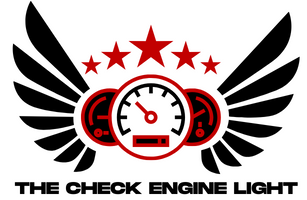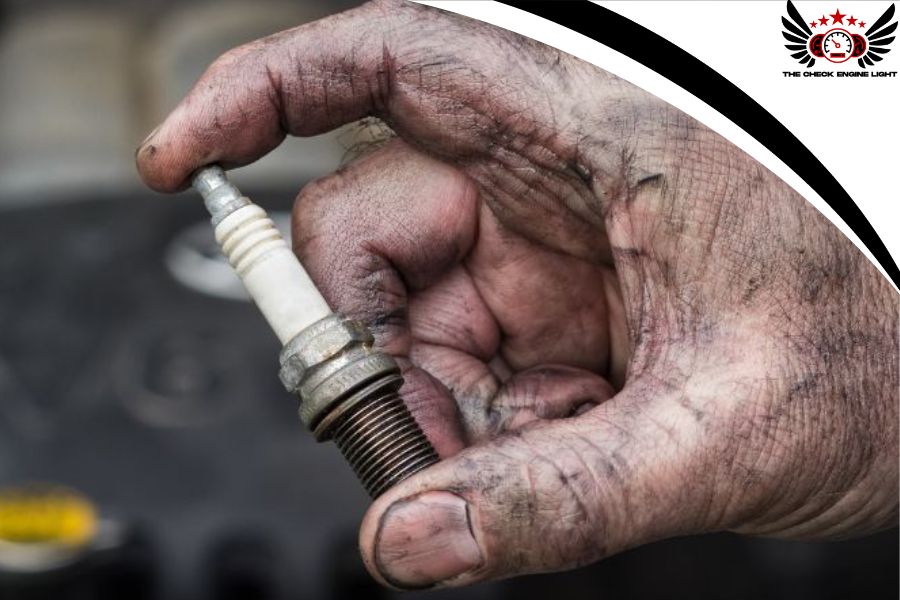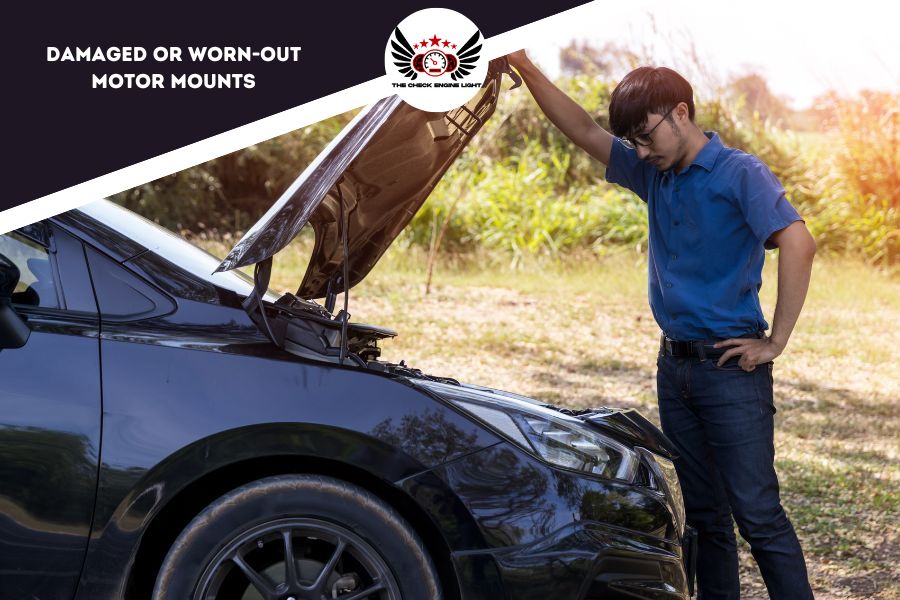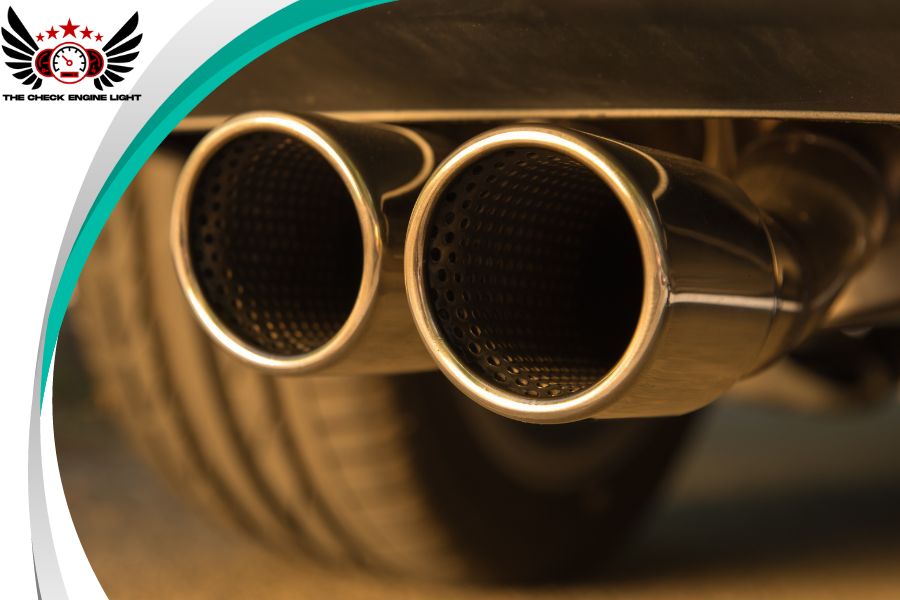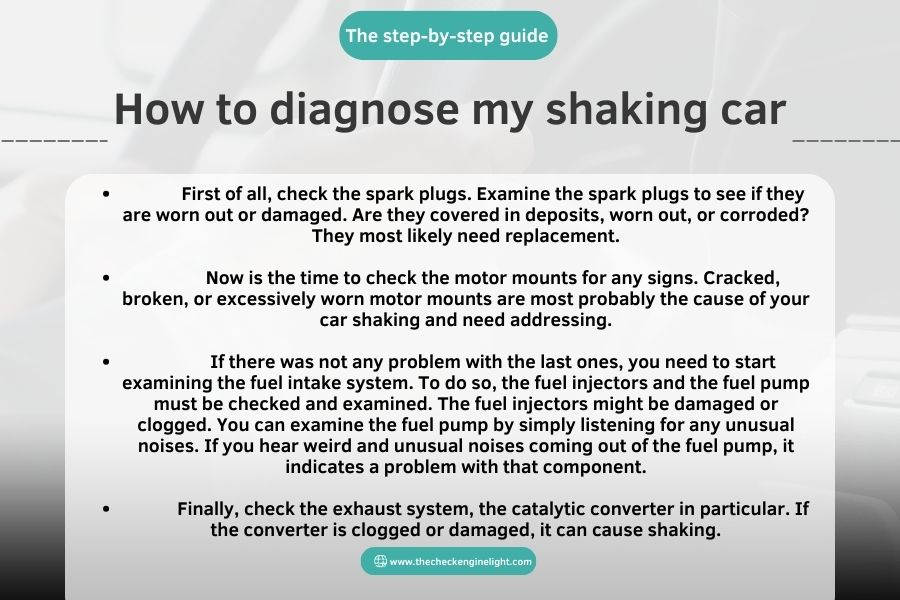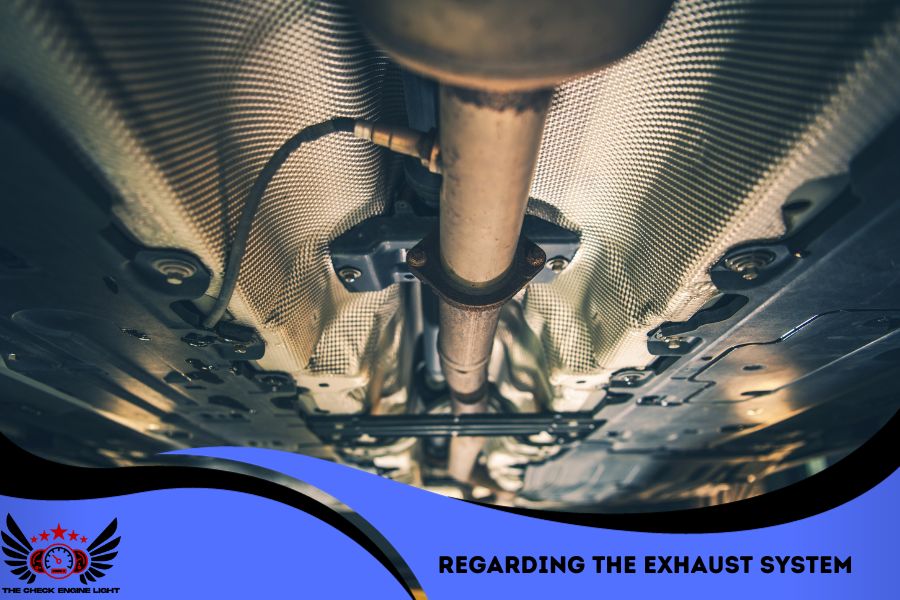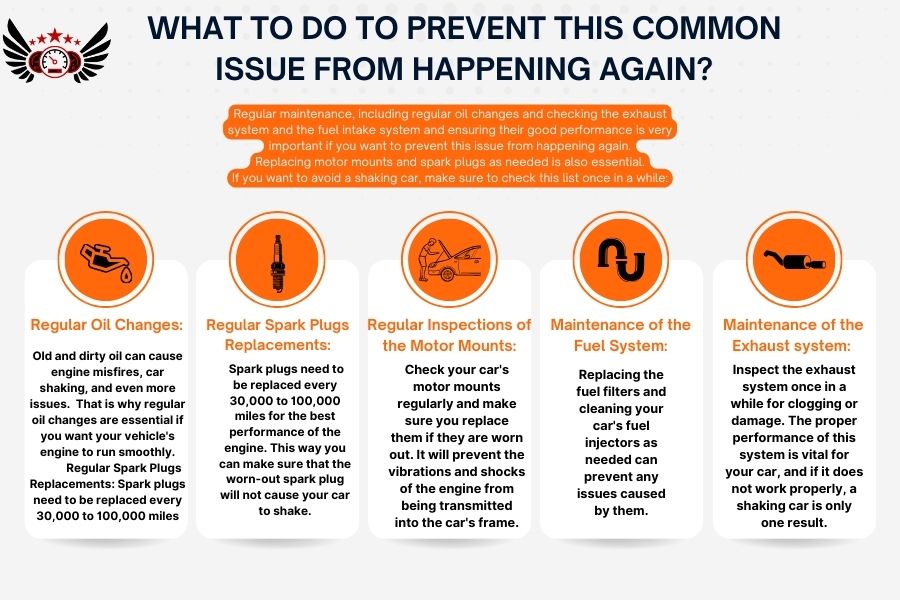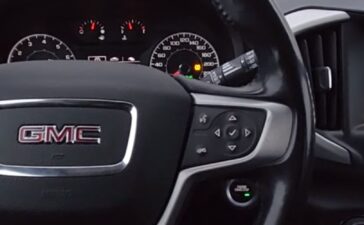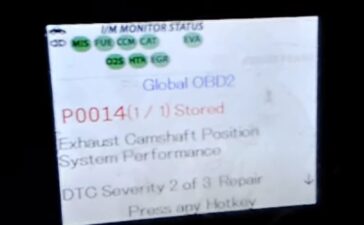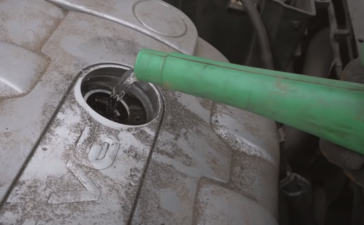Have you ever experienced your car shaking when starting, then running just fine? If you have, then you know how disturbing and disconcerting it can be, making you wonder if your car is on the verge of a breakdown, especially for car owners who are not mechanically inclined.
Now we have compiled this comprehensive guide, aiming to shed light on this issue, explaining the common and possible causes of this problem and how to fix it.
If you want to know what the mystery behind this common automotive issue is, make sure you read this article carefully. This guide will help you diagnose and fix the issue. So if your car shakes when starting then runs fine, keep reading.
Explaining the issue: “Car shakes when starting, but then runs fine.”
You might ask: What does it mean when people say “My car shakes while starting, then runs fine.”
Before we go any further, you need to understand the true meaning of this issue. So let me explain what it means.
Sometimes the car starts to noticeably shudder or vibrate during the ignition but there does not seem to be any problem when the vehicle is in motion.
So when you are trying to start the car, you feel an unpleasant shaking of the steering wheel or the seats, or even the whole car, depending on how severe the problem is.
The “shaking” that is mentioned in the issue’s description varies from a mild tremor to a very severe judder
However, after the ignition, when the engine starts to run, your car seems to be completely okay and operates normally the whole time, as long as the vehicle is in motion.
The reason behind this problem is often underlying mechanical issues, and whatever the cause is, it needs addressing and fixing.
If you are not such a handy car owner, then you are most probably worried about your car’s current condition, whether it is going to get worse, or if it is a sign of a future breakdown.
We have good news for you: Although it is vital for you to address the problems and causes promptly, this issue can be a symptom of many different underlying problems, most of which are easy to fix, causing you no big trouble.
The important thing is to diagnose and address the problem as soon as possible because ignoring them can make a relatively minor issue into a serious problem, which means more trouble, more expenses, and even losing your precious time and missing work and important tasks if you use your car for transportation.
You might also enjoy: Chevy 2500 Bolt Pattern: Ultimate Guide [2023]
What are the most common causes of car shaking at startup and ignition?
1. Damaged or worn-out spark plugs
The ignition system of any car is very dependent on the good operation of spark plugs. The spark plugs are responsible for generating the spark that ignites the air-fuel mixture in the engine’s cylinder, which in turn powers the engine.
If the spark plugs get damaged or worn out at any point, they cause your car to shake at startup.
Note that you should change your car’s spark plugs every 30,000 to 100,000 miles, depending on your driving habits and of course, the type of spark plugs that your car uses.
2. Engine misfires
When does a misfire happen? They occur when the engine’s cylinders are unable to fire properly. This leads to the imbalance of the vehicle’s engine, causing it to shake.
What can cause engine misfires?
Engine misfires are a common reason for car shakes when starting and then running fine and they happen for different reasons.
The reasons might be very simple and fixed even by you: spark plugs malfunction
And they can be more serious: a damaged engine control unit (ECU) or a malfunctioning fuel injector.
How can I know if the engine misfires are causing my car to shake when it starts?
The easiest way is to show your car to a qualified mechanic. They can make some assumptions about the symptoms.
If you want to check, knowing the symptoms of engine misfires can help you.
Engine misfires can cause a range of symptoms such as poor fuel economy, a rough idle, and loss of power. Add the car shaking while startup, and you can make an estimated guess about your car’s problem.
You might also enjoy: Jeep Check Engine Light: Causes And Solutions [2023]
3. Damaged or worn-out motor mounts
What is the job of the motor mounts in the car? They secure and lock the engine to the car’s frame, intended to absorb and decrease most vibrations and shock that the engine causes.
So it is obvious that any problems and damages regarding the motor mounts would cause the car to shake and vibrate when it is starting.
The materials used in the motor mounts are usually metal and rubber. So over time, the rubber degrades and loses its ability to absorb vibrations.
So if the rubber is not working its job, the engine’s shocks and vibrations can easily be transmitted to the car’s frame, making you feel the shaking every time your car starts.
4. Fuel intake system malfunction
If your car’s fuel intake system has any problem, it can lead to car shaking when starting, too.
Fuel injectors can get clogged, and fuel pumps can be damaged and not work. Their normal job is to make sure that your engine receives enough fuel. Any malfunction regarding these components means that there engine’s balance will be disrupted, causing it to shake when startup.
If at any point the fuel injector gets clogged, then the engine will not receive the amount of fuel that it needs. Then it will run lean and the air-fuel mixture will be imbalanced by too much air and less than normal fuel. This situation would cause engine misfires.
And if the fuel pump malfunctions, then the same happens: the flow of fuel gets disrupted, causing the imbalanced air-fuel mixture, and potential engine misfires.
5. Problems within the exhaust system
The car’s catalytic converter, a component in the exhaust system, can get clogged and cause your car to shake at startup. How?
The job of your car’s catalytic converter is to reduce harmful emissions and once it gets clogged, it can cause built-up pressure in the exhaust system, and this can cause your car to shake.
The exhaust gases are supposed to be safely carried away from the engine and carried out from the back of the car, and this is the job of the exhaust system to do so.
Are there any other symptoms of a problematic exhaust system?
If any component of the exhaust system malfunctions, there will be several issues such as a loss of power and car shaking. It can also cause the illumination of the check engine light.
You might also enjoy: Why Did My Traction Control And Check Engine Light Come On?
How can I diagnose my shaking car?
Making sure about the source of your car’s problem is very important, saving you a lot of money and time, and even preventing future breakdowns.
If your car is misdiagnosed, you will pay a lot of money for replacements and wages, spend hours or even days on fixing the problems and getting the car to a mechanic, and you will drop behind in any daily activity or routine, only to realize that it all has gone to waste because your car is not fixed and still shakes at every startup.
That is why you need a good and ensured diagnosis from a qualified and knowledgeable source.
Detecting the issues with a car that shakes when starting and then runs fine contains a procedure in which you eliminate the potential causes that are not the case.
You need to check every component and system that can cause the car to shake: spark plugs, motor mounts, fuel intake system, and exhaust system.
What should I be looking for?
While checking the spark plugs, motor mounts, fuel intake system, and exhaust system, make sure to look for any kind of damage, any signs of wear or malfunction, or any change in their usual looks.
Checking the engine misfire is also an important part of the diagnosis. To check the engine misfire, you can simply use the check engine light on your dashboard. The engine problems can often be identified using it.
How to diagnose my shaking car: The step-by-step guide
- First of all, check the spark plugs. Examine the spark plugs to see if they are worn out or damaged. Are they covered in deposits, worn out, or corroded? They most likely need replacement.
- Now is the time to check the motor mounts for any signs. Cracked, broken, or excessively worn motor mounts are most probably the cause of your car shaking and need addressing.
- If there was not any problem with the last ones, you need to start examining the fuel intake system. To do so, the fuel injectors and the fuel pump must be checked and examined. The fuel injectors might be damaged or clogged. You can examine the fuel pump by simply listening for any unusual noises. If you hear weird and unusual noises coming out of the fuel pump, it indicates a problem with that component.
- Finally, check the exhaust system, the catalytic converter in particular. If the converter is clogged or damaged, it can cause shaking.
You might also enjoy: Everything You Need to Know About Mazda Check Engine Light
What if I did not find any problem with the mentioned components and systems?
This is a sign that you need to take your car to a professional mechanic. They can help you diagnose your car thoroughly.
Even if you did make some assumptions, there is no harm in asking for a second opinion from a qualified mechanic.
5 best possible fixes If your car shakes at startup but then runs fine
1. If the cause is a faulty spark plug, replace them
If it is, replacing them will solve the problem.
Even if you are a little bit handy and skilled in the mechanic field, you can easily use the proper tools to address this issue yourself. This fix is easy and inexpensive, and all you are going to need is a ratchet, a spark plug socket, and a set of new spark plugs.
To fix the issue, first, remove one of the faulty spark plugs and then replace it carefully. Make sure it is not over-tightened. Then do another one, and proceed to replace them all.
After replacing all the spark plugs, you can start your car to see if the issue is solved and your car has stopped shaking.
Hopefully, it would if you diagnosed it accurately.
But if the vibration is still sensed inside the car, the solution is to ask a professional for help.
2. If your car’s motor mounts are damaged or worn out replace them
Worn-out or damaged motor mounts usually need replacement and are complex indeed, since lifting the engine of the mount is required and then you need to remove the old mounts and replace new ones.
This would mean that you need to have special tools, knowledge, and qualifications. So we recommend hiring skilled hands to do this job.
3. If there is any problem within the fuel intake system clear them or replace them
The underlying mechanical cause of your car shaking while startup can be a problem within the fuel intake system. However, diagnosing the problem within the fuel intake system is not that easy.
If you or a professional are sure about the origin of your car’s problem, the next step is to find the specific component that causes it. It can be the fuel injectors, the fuel pumps, etc…
If the fuel injectors need cleaning or replacing, you can do it at home if you have a little skill, patience, and of course the proper instruments and tools.
But if you need to fix the fuel pump and replace it, usually involving dropping the fuel tank, it is best to leave it to the capable hand of a professional.
This is more complex and there is a high chance that you will not be able to fix it.
You might also enjoy: Why Is The Check Engine Light Flashing When Accelerating?
4. If any issues are found regarding the exhaust system, clean the catalytic converter, repair it or replace it
Your car might need some changes regarding the exhaust system if the catalytic converter is clogged in particular.
If you have diagnosed the issue and the source, and you realize that it traces back to the exhaust system, you might need to clean or even replace the catalytic converter or repair some other parts of the exhaust system.
If you realize that your car’s shaking is because of the catalytic converter’s malfunction, we strongly recommend you get a second opinion before choosing to change your car’s catalytic converter.
Catalytic converters are quite expensive to replace and it is worth it to make sure before you pay a lot of money for their replacement only to realize that this is not the problem.
There is also the alternative of “cleaning” the catalytic converter before you try replacing it. This can save you a lot of money.
5. If you were unable to diagnose or fix the problem on your own, seek professional help!
This one is very easily done: seek professional help!
There are qualified mechanics out there who are trained and skilled to help you with any problems relating to your car.
Try diagnosing and fixing the problem by yourself if you consider yourself a handy and knowledgeable person in this field, but the best solution is to get the job done by professionals, especially if you are not quite familiar with it.
The professionals can help you diagnose your car accurately and then offer you the best fixes and solutions for that issue. They will help you fix the problem easily and you will not have to get your hands dirty!
Do not feel unconfident or afraid about asking questions. You need to realize what exactly is wrong with your vehicle. You need to know how it can be fixed, how much it would cost, and if there are any other problems you need to address.
The terms that the mechanics usually use could seem intimidating to you, especially if you are not mechanically inclined. Do not fear to ask anything that is on your mind.
But of course, finding a trustworthy, capable, skilled, and qualified mechanic can be a challenge.
You might also enjoy: What to Do When The BMW Check Engine Light Comes On?
How can I find the best mechanic for my shaking car?
Trusting the recommendations from family and friends has always been a good way to find what or who you need. Although, they might have a one-time experience they are satisfied with!
Another good way to get the best recommendations for the best mechanics in your area is by checking online reviews.
People most often leave a comment when they have bad experiences regarding a business, or if they had a fantastic experience.
So you can trust the online reviews to find a mechanic.
Do not concentrate on a couple of good or bad comments and consider the general opinions, starts, and rates.
Good and qualified mechanics would provide an estimation for the work, explain the problem, the fixes, and alternative solutions, and describe anything that seems difficult to understand.
They will stand behind their repairs until the issue is solved.
What to do to prevent this common issue from happening again?
Regular maintenance, including regular oil changes and checking the exhaust system and the fuel intake system and ensuring their good performance is very important if you want to prevent this issue from happening again.
Replacing motor mounts and spark plugs as needed is also essential.
If you want to avoid a shaking car, make sure to check this list once in a while:
- Regular Oil Changes: Old and dirty oil can cause engine misfires, car shaking, and even more issues. That is why regular oil changes are essential if you want your vehicle’s engine to run smoothly.
- Regular Spark Plugs Replacements: Spark plugs need to be replaced every 30,000 to 100,000 miles for the best performance of the engine. This way you can make sure that the worn-out spark plug will not cause your car to shake.
- Regular Inspections of the Motor Mounts: Check your car’s motor mounts regularly and make sure you replace them if they are worn out. It will prevent the vibrations and shocks of the engine from being transmitted into the car’s frame.
- Maintenance of the Fuel System: Replacing the fuel filters and cleaning your car’s fuel injectors as needed can prevent any issues caused by them.
- Maintenance of the Exhaust system: Inspect the exhaust system once in a while for clogging or damage. The proper performance of this system is vital for your car, and if it does not work properly, a shaking car is only one result.
Is it safe to drive a car that shakes when starting?
It depends on how you define “safe”. If by “safe” you mean “Would my car explode while I’m driving it?” then the answer is “No! You will not explode! So it is safe.” but if you do not want to make the problem worse than it already is, we advise you not to ignore the issue.
A shaking car means underlying mechanical issues and even though it might not cause immediate harm, it can gradually cause bigger problems.
You might also enjoy: Flashing Check Engine Light Then Stops: Causes and Fixes
What does it cost to fix a car that shakes while starting?
You can never know before taking the car to a professional, and it is because of the different reasons that can cause your car to shake.
If the problem is minor like bad spark plugs, the cost would be little, but it could be as much as several hundred dollars if the problem is bigger and needs more complex repairs.
Can I fix a shaking car myself?
You can if the issue is as simple as replacing spark plugs. Such fixes can be done at home. However, more complicated problems are more likely to need professional assistance.
Final words
If your car shakes when starting and then runs fine, it shows that there is something wrong with your car. Diagnosing the problem is the first step toward fixing this common issue. After finding the source of the car’s shaking and addressing it, we recommend taking preventive measures to avoid any recurrence.
Remember that the best approach when in doubt, is to seek professional help.
